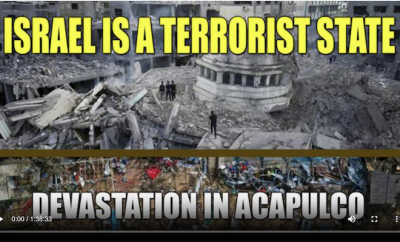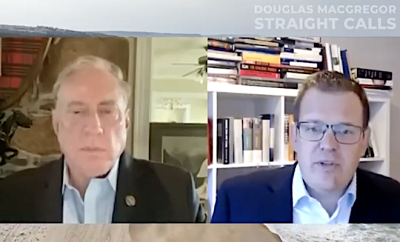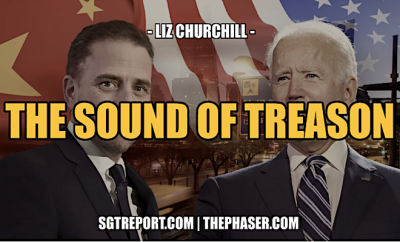 Oriental Review.org/ Ruins of Saraevo, 1995
Oriental Review.org/ Ruins of Saraevo, 1995
Featured
A Bosnian scenario for Ukraine?
by Ivan Proshkin, via Oriental Review.org:
The future for America’s shipments of lethal weapons to Ukraine is not yet clear. However, the current situation there is distinctly reminiscent of another conflict from 20 years ago – the Bosnian War – during which the United States and NATO worked actively to arm one side, eventually leading to tremendous bloodshed.
Recently, former NATO Supreme Allied Commander Gen. Wesley Clark statedthat the US should arm Ukraine in order to avoid massive bloodshed there. “In Bosnia, we tarried, and more than 100,000 died and 2 million were displaced before we acted. It’s time to take those lessons and now act in Ukraine.”
But Clark is obviously being disingenuous. In fact, it was the American decision to recognize Bosnia-Herzegovina’s independence from Belgrade on April 7, 1992 that triggered the sharp deterioration of the situation in the Balkans. Afterward, the Serbs (the Republic of Serbia) announced that they did not recognize the authority of the US- and EU-leaning central Muslim government of Bosnia-Herzegovina (BiH), and they began to form their own army, recruited from the garrisons of the Yugoslav Army inside Bosnia-Herzegovina. By April 1992, major military operations had already been launched between the Serbs and the Bosnian Muslims, which resulted in the destruction of most of the cities in BiH, including Sarajevo. The West laid the blame for the escalation of the conflict on the Bosnian Serbs, who – according to the United States – were being supported by the Yugoslav leader, Slobodan Milošević.
Previously, on Sept. 25 1991, the UN Security Council had adopted Resolution 713, under which an arms embargo had been levied against all the state entities that had emerged within the former Yugoslavia. The Bosnian government repeatedly asked that the embargo be lifted so they could procure weapons for their war against the Serbs, but that request was vigorously opposed by both Russia and France. The US Congress twice adopted resolutions calling for the embargo to be lifted, but then-President Bill Clinton vetoed them, not wanting to damage relations with France or the young Russian democracy. In violation of Security Council Resolution 713, the US unofficially but actively supplied Bosnia with arms and ammunition. Weapons were delivered to the Bosnian Muslims in several ways:
1) Through Croatian ports on the Adriatic Sea and then onward through Croatia into Bosnia-Herzegovina.
2) By land, in the guise of humanitarian aid from the EU.
3) By air, using NATO military transport aircraft.
4) From Albania through Kosovo under the watchful eye of the US while that region began its transformation into the major hub for drugs and weapons that it is today.
Saudi Arabia was one of the biggest arms suppliers operating through Kosovo. Throughout the crisis, which lasted several years, weapons continuously entered Bosnia. In 1993 alone, according to the Washington Post, America’s allies, including Saudi Arabia, shipped $300 million worth of armaments into Bosnia. Meanwhile, back in July 1993 the government of Yugoslavia had told the UN about major arms shipments being delivered to the Bosnian Muslims from NATO countries (Austria and Germany – from the former military warehouses of the GDR), as well as from Hungary, Switzerland, and many other countries. The US ambassador to Croatia at that time, Peter Galbraith, was forced to admit that his country was closing eyes on violations of the international embargo for arms shipments to Bosnia.
The truth about the shipments of American arms has come to light on more than one occasion. For example, in the summer of 1992, 120 tons of weapons were discovered at the airport in Maribor (Slovenia), hidden in containers labeled as humanitarian aid for Bosnia. In many ways the West tried to conceal their arms shipments to BiH prior to 1994, but by 1995, they were proceeding much more openly. NATO military transport planes provided the Bosnian Muslims with surface-to-air missiles, the latest anti-tank weaponry, and more. As a result, the foreign minister in Alija Izetbegović’s government, Irfan Ljubijankić, proudly stated at the time that the Bosnian Army had all the weapons it needed to continue the war, except that “the Bosnians lack artillery.”
In addition to undisguised shipments of military equipment, in early 1995 the US Air Force took on a direct role in the military operations against the Bosnian Serbs. NATO aircraft began to patrol the country’s airspace. The situation culminated in NATO’s Operation Deliberate Force, lasting from Aug. 30 – Sept. 20, 1995, during which American aircraft attacked not only military targets in the Republic of Serbia, but also the civilian infrastructure. America’s overt intervention in the war led to the signing of agreements reached at a US military base, under which much land that was historically Serbian was handed over to the Bosnian Muslims, prompting a huge influx of refugees across the border into Serbia.
Thus, the weapons provided by NATO in order to bring about “peace as soon as possible” in Bosnia, led not to a resolution of the situation, but to a sharp escalation of the conflict. The weaponry fed to the Bosnian army was the trigger that sparked over three years of armed hostilities. This led to 150,000-200,000 deaths and the devastation of both the infrastructure as well as the system of vital social services throughout the country.
Read More @ Oriental Review.com
















